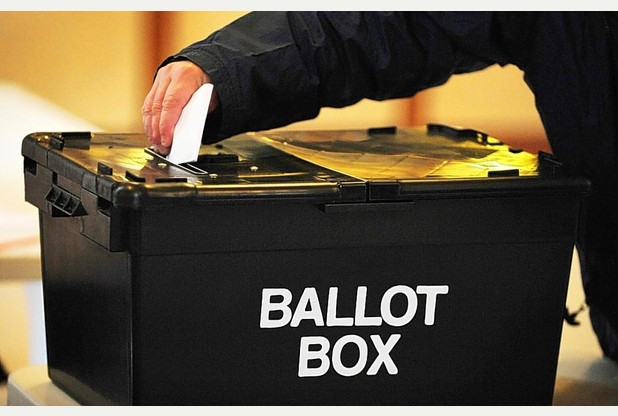Do we get the politicians we deserve?
South Wales Evening Post -18 February 2014
If you think ''lockstep'' is something to do with line-dancing or that ''subsidiarity'' is about building regulations then you're wrong on both counts. But don't take it personally.
There'll be plenty more of this policy jargon in the next four years as we're asked to elect candidates to Strasbourg, Westminster, Cardiff Bay and sundry civic centres — and in that order.
The predicted result of all this democracy, says a recent study, is that electors who already feel remote from the centres of power will quickly develop terminal voter fatigue.
The worrying thing is that the same message is being picked up in the public affairs world and elsewhere.
Show me someone who says they don't do politics and I'll show you someone among a growing number of people unsure if their vote actually counts for anything.
Young people are currently being urged to ''Bite the Ballot'' and register as electors. I'm hoping that it's a fruitful campaign if only because research suggests less than a fifth of 16 to 25 year-olds hold a positive view of the electoral process.
Even fewer think it's a viable means of achieving change compared with direct action – such as the 2010 tuition fee protests.
Of course, scepticism about the democratic system is by no means the sole province of the young. Nor is it entirely unwarranted.
Most politicians will privately admit that the accusation hurled at them on doorsteps that "you lot are all the same" has some basis in truth.

Do we lose out by not using our vote?
But it's tough for parties to appear distinctive while they're also trying to position themselves in line with current public trends garnered from opinion polls & focus groups.
After all, elected representatives are supposed to be representative, aren't they?
There's no argument either that the country has its own professional political class, although the difference these days is that government ministers are more likely to be former lobbyists than lawyers. You'll have to decide for yourself if this is an improvement. I couldn't possibly comment.
Yet despite these apparent flaws, the flooding disasters around the country confirm that communities are far more interested in seeing action rather than accountability from politicians when it counts.
And as much as think-tanks decry the ''hidden executive'' where decisions that affect our day-to-day lives are taken by faceless quangos, we're not exactly rushing as electors to embrace the democratisation of public office. A case in point is the dismal 14.9 per cent turnout to elect the new Police and Crime Commissioners, who replaced appointed police authorities.
It also has to be said that for a nation fond of espousing the merits of democracy to others, we don't seem to have quite nailed the basics ourselves. Take for example the different types of voting systems we use.
First Past the Post, Single Transferable Vote and Additional Member makes for a mix of ballot papers as incomprehensible as a dual energy bill and just as unsatisfactory. It looks however like we're stuck with this pick and mix arrangement for the time being. Recent attempts at electoral and constitutional reform found themselves sabotaged by partisan expediency on all sides.
Like the man said, politics is essentially about perception. As long as politicians are seen to be more preoccupied with institutional process and sound bites than with bread and butter issues, so voters will remain disengaged.
Yet experience also tells us that when their grip on those processes is loosened then it is our freedoms, such as they are, which tend to be put at risk.
So is the answer to adopt the Australian approach where you get democracy without the option through compulsory voting? Or should we have the US idea of having ''none of the above'' as a valid choice on a ballot paper?
Don't look to me for answers. I just work here.
There are only two things I can tell you with some certainty. The first is that democracy is about choice and its success depends as much on those who fail to exercise a choice as those who do. The second is that this means we usually get the politicians and governments we deserve.